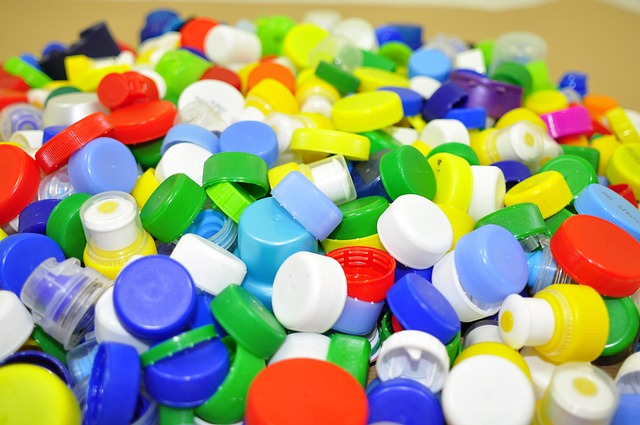Removing waste at home is key to waste reduction, living eco friendly, and staying organized. Whether you want to reduce food waste, recycle better or adopt sustainable habits, having thought out strategies can make waste removal easier and more effective. Here are 14 ways to remove waste at home to minimize household waste, save money and live more sustainably.

Create a Recycling System
Knowing your local recycling rules is the first step to removing waste. Recycling programs play a crucial role in effective waste removal by organizing and managing the recycling process. Many communities have specific rules for recyclable materials like plastic bottles, paper waste and glass.
- Have separate bins for paper, plastic and other recyclables.
- Rinse recyclable containers to prevent contamination.
- Avoid single use plastics and opt for reusable containers and cloth bags instead.
This reduces household waste and encourages a more sustainable lifestyle by reducing unnecessary packaging and plastic waste.
Compost Organic Waste for a Greener Garden
One of the most eco friendly ways to manage organic waste is composting. There are various composting methods, each with its own benefits, such as faster decomposition or suitability for different types of organic waste. Collect kitchen scraps like fruit peels, coffee grounds and tea bags to create a compost bin. Don’t compost meat and oily foods to prevent odors and pests.
The composting process gives you nutrient rich soil for your garden so you don’t need chemical fertilizers. This saves you money and is environmentally friendly.
Donate or Repurpose Unwanted Items
Decluttering doesn’t have to mean adding to landfill waste. Donate unwanted items like clothes, furniture and electronics to local charities or a local charity shop. Or consider thrift stores or upcycling projects to give these items a second life.
Repurposing and donating reduces packaging waste and supports the local economy and minimizes your footprint.
Minimize Food Waste with Planning
Minimizing food waste starts with smart shopping and meal planning.
- Create a weekly meal plan to avoid overbuying.
- Store food in reusable containers to keep it fresh for longer.
- Use leftovers creatively to minimize waste at home.
Minimizing food waste saves you money and reduces the load on waste management.
Choose Eco-Friendly Cleaning Products
Choosing eco-friendly cleaning products is a simple yet effective way to reduce waste and promote sustainability. Many conventional cleaning products contain harsh chemicals that can pollute the environment and damage your health. Eco-friendly cleaning products, on the other hand, are made with non-toxic ingredients that are gentle on the environment and your health.
When shopping for eco-friendly cleaning products, look for products labeled as “biodegradable” or “non-toxic.” You can also make your own eco-friendly cleaning products using natural ingredients like baking soda, vinegar, and essential oils. This can help reduce packaging waste and save you money.
Some popular eco-friendly cleaning products include:
- All-purpose cleaners made with natural ingredients like lemon juice and vinegar
- Glass cleaners made with vinegar and water
- Dish soap made with natural ingredients like coconut oil and essential oils
- Laundry detergent made with natural ingredients like soap nuts and essential oils
By choosing eco-friendly cleaning products, you can reduce your environmental impact and promote sustainability.
Choose Eco Friendly Cleaning Products
Household waste includes harmful chemicals from conventional cleaning products. Green cleaning offers numerous benefits, such as reducing exposure to toxic chemicals and promoting a healthier environment. Make your own cleaning products with natural ingredients like baking soda and vinegar or buy eco friendly cleaning products.
This reduces the amount of toxic material entering your home and contributes to a more sustainable future.

Manage Yard and Garden Waste
Yard waste including grass clippings, leaves and branches can quickly accumulate during gardening season. Yard waste disposal options include composting, mulching, and using local disposal services.
- Compost yard waste to create compost for your plants.
- Use shredders to break down garden waste into mulch which saves space in disposal bins.
By managing yard waste you reduce your carbon footprint and support eco friendly practices in your garden.
Choose Reusable Options
Replace single use plastics and paper towels with reusable products like cloth napkins, metal straws and reusable containers. Using reusable items in your daily life is a great way to minimize waste at home.
And using reusable bags during shopping trips reduces plastic bags and saves you money in the long run.
Reduce Packaging Waste
Packaging waste from groceries and household items is a big contributor to household waste. Bulk buying is a strategy to reduce packaging waste. Choose products with minimal packaging or buy in bulk to reduce packaging waste.
Shopping locally and supporting small business can also reduce unnecessary packaging and support the local economy.
Go Digital
Reducing paper waste is another way to minimize waste. Digital receipts are an option to reduce paper waste. Go digital and eliminate paper bills and opt for paperless statements from service providers.
At home replace paper towels with washable cloths which are more durable and reduce household waste over time.
Dispose of Hazardous Materials Safely
Household waste includes hazardous materials like batteries, light bulbs and electronic devices. Hazardous waste disposal options are available to ensure these items are handled safely. These items need special handling to avoid environmental harm.
- Look up local waste removal services or drop off points for hazardous materials.
- Make sure recyclable materials like old electronics and plastic packaging are sorted properly.
Proper disposal of hazardous materials is good for the environment and public health.

Invest in Sustainable Goods
Investing in sustainable goods is a great way to reduce waste and promote sustainability. Sustainable goods are made with environmentally friendly materials and are designed to last longer, reducing the need for frequent replacements.
When shopping for sustainable goods, look for products made with sustainable materials like bamboo, hemp, and recycled materials. You can also look for products that are certified by organizations like the Forest Stewardship Council (FSC) or the Global Organic Textile Standard (GOTS).
Some popular sustainable goods include:
- Bamboo toothbrushes and straws
- Reusable bags made from sustainable materials like cotton and jute
- Sustainable clothing made from organic cotton and recycled materials
- Home decor items made from sustainable materials like reclaimed wood and bamboo
By investing in sustainable goods, you can reduce your environmental impact and promote sustainability.
DIY Household Products
Making your own DIY household products is a great way to reduce waste and promote sustainability. Many conventional household products contain harsh chemicals and come in single-use packaging, contributing to waste and pollution.
By making your own DIY household products, you can reduce packaging waste and avoid harsh chemicals. You can also customize your products to your specific needs and preferences.
Some popular DIY household products include:
- All-purpose cleaners made with natural ingredients like baking soda and vinegar
- Laundry detergent made with natural ingredients like soap nuts and essential oils
- Dish soap made with natural ingredients like coconut oil and essential oils
- Candles made with natural ingredients like beeswax and essential oils
By making your own DIY household products, you can reduce your environmental impact and promote sustainability.
Educate and Involve
Educating and involving others in waste reduction efforts is crucial for promoting sustainability. By sharing your knowledge and experiences with others, you can inspire and educate them to take action.
Here are some ways to educate and involve others:
- Share your knowledge and experiences with friends and family
- Participate in community events and workshops on waste reduction and sustainability
- Join online communities and forums on waste reduction and sustainability
- Share articles and videos on social media to raise awareness about waste reduction and sustainability
By educating and involving others, you can create a ripple effect and promote sustainability in your community.
Some popular ways to educate and involve others include:
- Hosting a waste reduction workshop or webinar
- Creating a social media campaign to raise awareness about waste reduction and sustainability
- Starting a community garden or composting program
- Organizing a community clean-up event
By educating and involving others, you can promote sustainability and create a cleaner, greener community.
Now go and minimize waste at home!